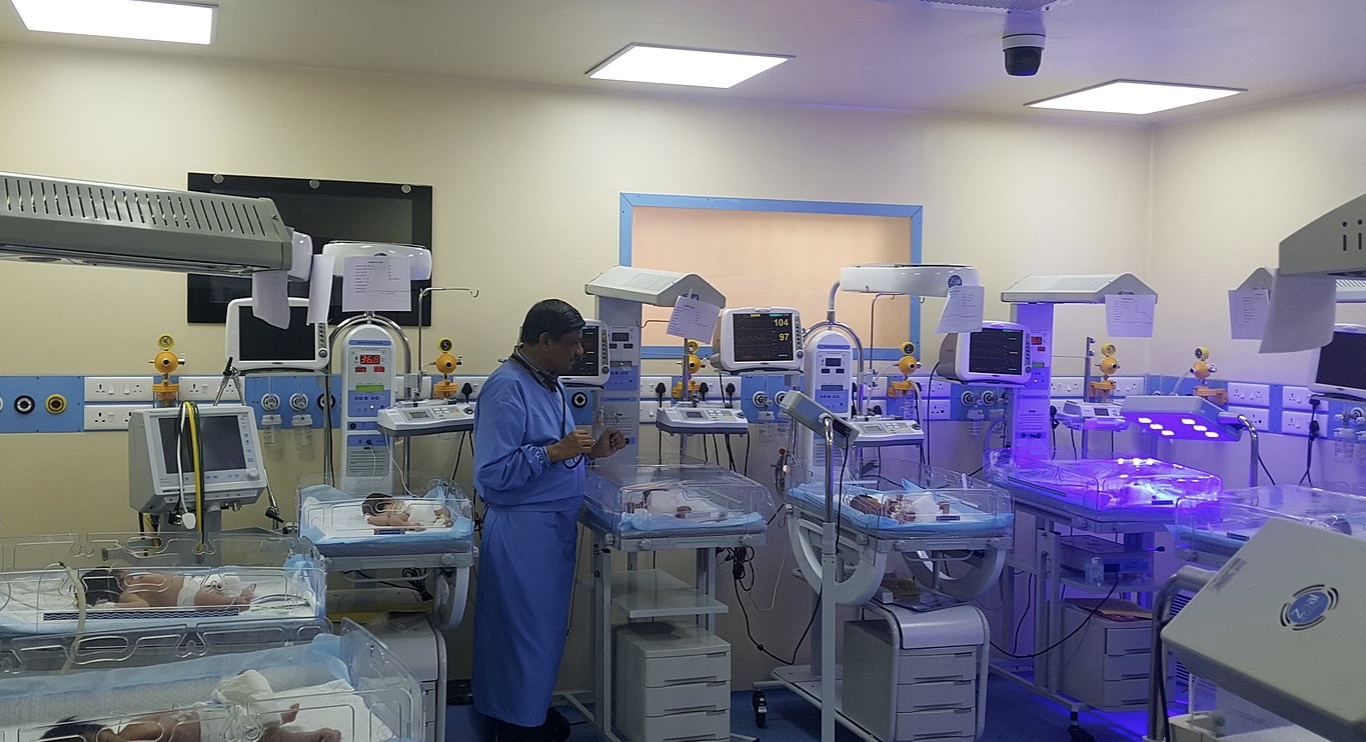Being told your newborn needs intensive care treatment is something nobody wants to hear, and it can be a very scary time for new parents.
There are lots of reasons a baby might need the Neonatal Intensive Care Unit (NICU). Being born prematurely, having an infection, or needing surgery are all common reasons for a stay in NICU.
Although in a perfect world, no baby would ever need this specialist treatment, it is often the best place for a little one to be and is somewhere they can receive the very best round-the-clock care.
To help take some of the fear out of the NICU ward, it can help to be informed, so read on to find out all the things you should know about this department.
Reader's Roadmap
Who takes care of the babies?
NICUs have a team of specially trained professionals to look after the babies in their care.
These include specialists in premature babies such as neonatologist doctors and neonatal nurses, and nurse practitioners.
Doctors who focus on children’s health, known as pediatricians, along with other medical professionals who specialize in things such as respiratory care, physical therapy, and lactation, are also part of the NICU team.
You might also see social workers, case managers, nursing assistants, and housekeepers working within the department too.
Many of these healthcare professionals are experts in their field, highly experienced in this particular area who have undergone further training. For example, actively practicing Registered Nurses (RNs) can prepare for an advanced role in leading infant nursing care through neonatal nurse practitioner programs like those provided by Baylor University.
What equipment do they have?
While all the machinery, tubes and noises of the NICU can sometimes add to the anxiety, the equipment contained in the units is lifesaving, and knowing what it does might make you feel more comfortable with everything there.
Equipment includes heart and blood pressure monitors and pulse oximeters, measuring oxygen saturation in the blood, which is attached to the baby, and take either constant or regular measurements. Temperature probes will also be used to monitor the temperature and regulate the heat within the incubator.
Radiology imaging technology such as x-ray machines, CT scanners, and MRI scanners is also commonly used for babies in intensive care to help build a better picture of what is happening on the inside.
There is also a variety of medical equipment associated with supporting a baby’s breathing such as endotracheal tubes, ventilators, continuous positive airway pressure tubes, and extracorporeal membrane oxygenation machines.
How long do babies stay in NICU?
How long or short a stay a baby has in NICU will entirely depend on the specific child’s needs. It’s impossible to determine how long a baby will stay in intensive care without looking at the individual child’s circumstances, and even then, nothing can be guaranteed.
However, if your child has been admitted to NICU because they were born prematurely, the number of week’s gestation and size of the baby at birth will be major determining factors.
Without serious complications, a preterm baby could be expected to be discharged from the hospital somewhere around a couple of weeks before their original due date. However, if there have been respiratory problems, this can prolong an infant’s stay in the unit.
Essentially, if a child’s needs are more complex and perhaps needs to undergo major surgeries, their stay will be much longer, while a baby who just needs a little support following a preterm or difficult birth may only be there for a shorter period while they are stabilized.
What should you expect when you visit?
Most NICUs limit visitors, both who they will permit into the unit and the number of them at any one time. These measures are in place to keep the unit calm and clean.
Other methods used to prevent the spread of germs include antibacterial gels and handwashing facilities at the entrance.
You might also be asked to wear surgical gowns or face masks to also stop the spread of unwanted bacteria.
You should not visit a NICU if you are feeling unwell, and you should also avoid taking anything unnecessary into the unit, such as toys.
You might not necessarily be able to hold your baby if they are very small or sick, but you should be able to touch them and hold their hand.
Can you feed your baby?
The World Health Organization recommends breastfeeding for two years and beyond, and that is especially important for premature babies as breast milk protects against infection from which preterm infants are particularly at risk from.
If your baby is too small to breastfeed directly, milk can be expressed either by hand or using a pump, and this milk can then be fed to them using a feeding tube.
Once your baby is bigger and stronger, you can then ask for support in initiating feeding straight from the breast.
How can you take care of yourself?
The worry of everything can disturb your sleep, but it is vitally important for your physical and mental health that you try to get enough rest. Your baby needs you to stay well, and when they come home, you will have less chance of getting the recommended eight hours of sleep per night.
Eating a proper, well-balanced diet will also help you to keep your strength up, and good nutrition will also help to protect your mental wellbeing too. Perhaps ask a friend to help you with preparing some meals for the freezer for those days you can’t face cooking from scratch.
If you do find the situation taking a toll on your mental health, you should reach out for support from family, healthcare professionals, or mental health experts.
This is an anxious time for mothers and fathers. Their tiny bundle of joy in an incubator instead of their arms is a hard thing to come to terms with.
If you are struggling emotionally, talk about it and seek professional help if necessary and ask questions about your baby’s care, as sometimes getting all the information available can help you deal better with all the worries and what-ifs.






Leave a Reply
View Comments